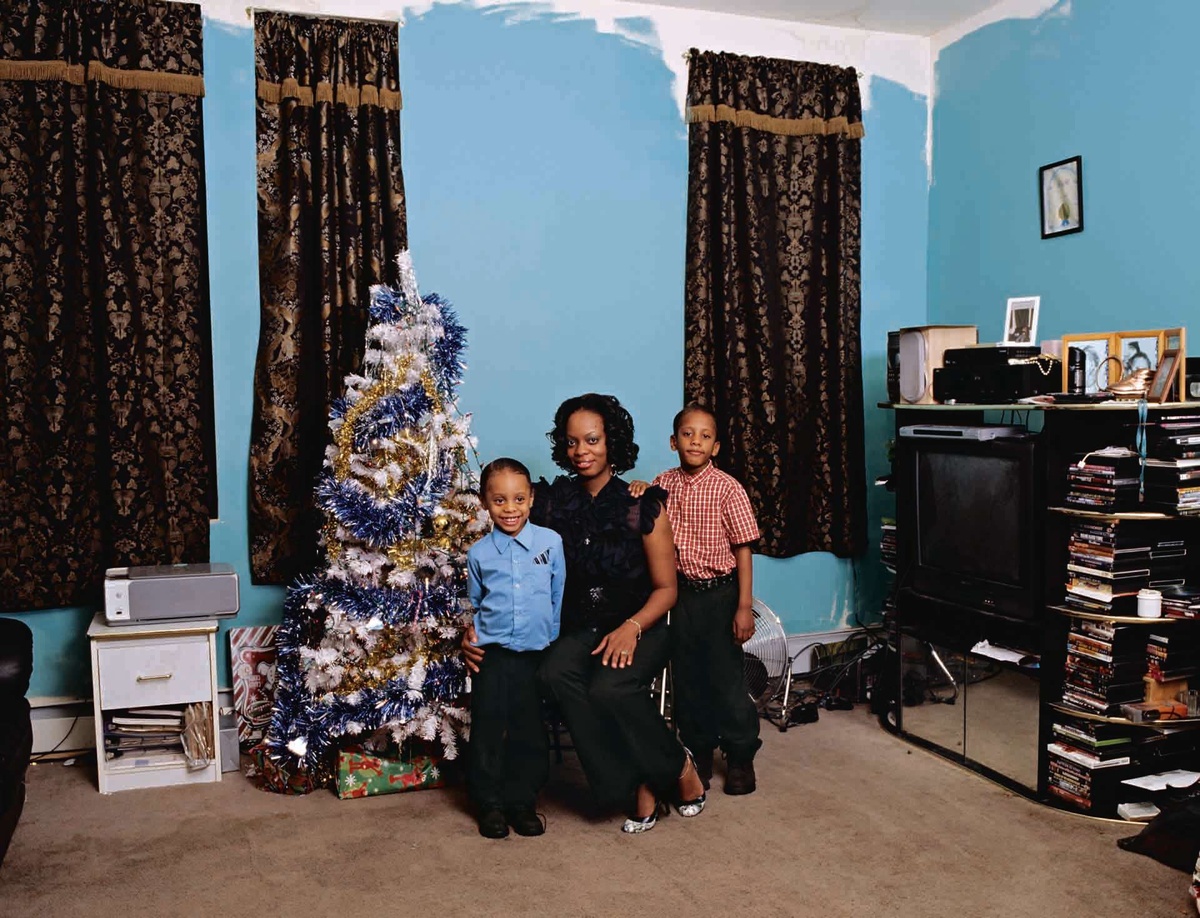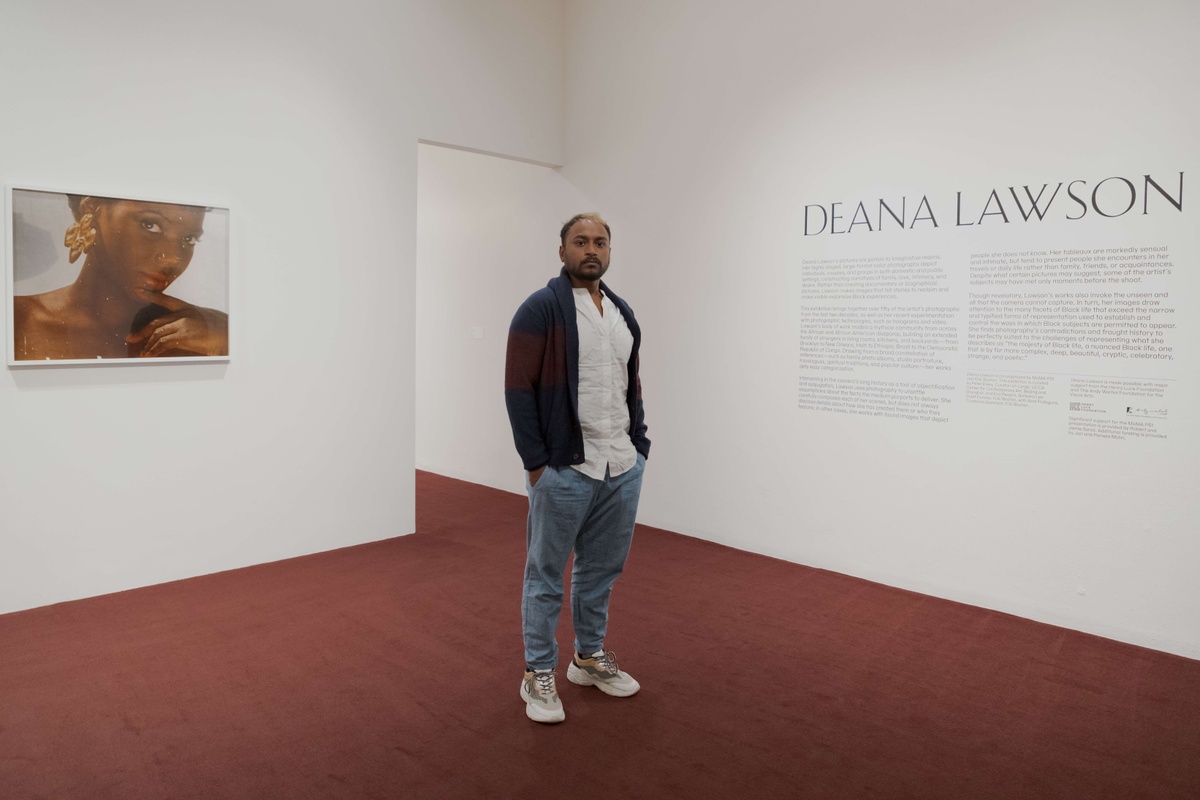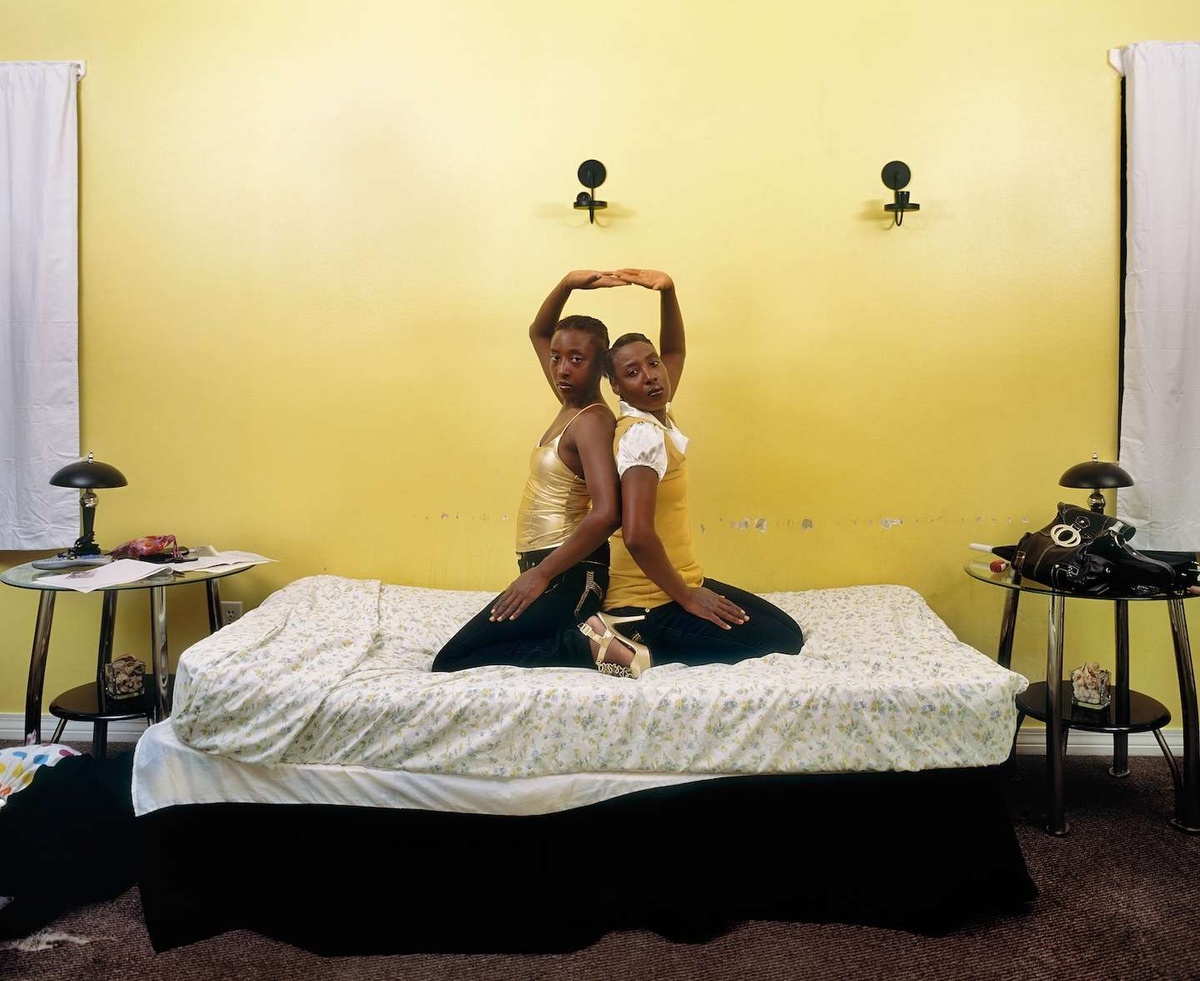Avijit Halder: My name is Avijit Halder. I’m an artist who works with photography, painting, and also moving images. Who incorporates these things into their artistic practice.
When I look at an image like this Coulson Family, it’s a mother with two children.
And then you see the walls that were white, but were painted this sky blue and unfinished edges, but also the way the paint is layered. It looks like a brushstroke that were unfinished on a canvas. It’s taken from sort of like this documented tradition, but then you see it’s an image of a family.
All these layers, are not just like this physical, painterly stroke, but also layers of the different traditions of visual imaging are present. Photography the way it has been used for a long time as an evidence, or like this truthful thing. But everything about a photograph is a lie. Because of that, we face all these discrimination, people in minority because of the images that have been circulated or that represents what beauty means. The violence is not just direct, like what’s happening today, but sort of the inherent trauma, that as soon as you grow up, you see there is no one that looks like you, that doesn’t represent, that doesn’t do anything other than what the TV shows you, and you steer towards that. And that only, because that’s what the images have referenced you or your type as. She’s creating a fantasy. She’s saying that there is punctum in everything. And I think because this is a minority and I don’t always have to show trauma or joy. You know what I mean? When things doesn’t quite match up our defined ideas of representation, it’s okay. That only creates a kind of empathy. All her images are so intimate. It seems like she could be part of any of them. In way it is all self portraits. It’s like her connection to the stranger in the way that she sees them. And then together, they collaborate to see something else. She’s not representing anything, but I think she’s directly criticizing representation itself.


